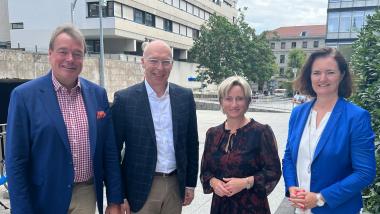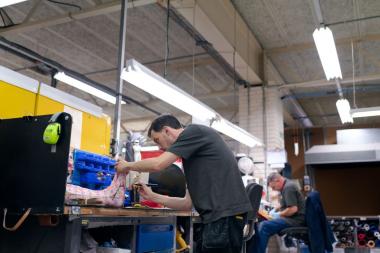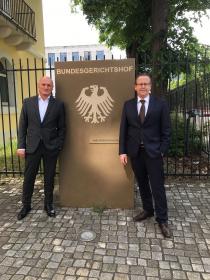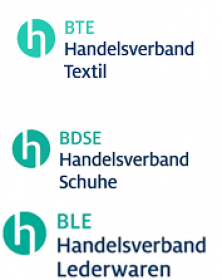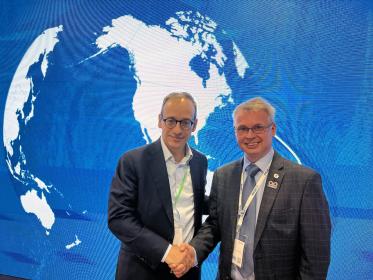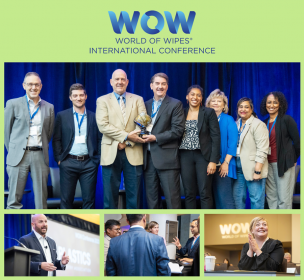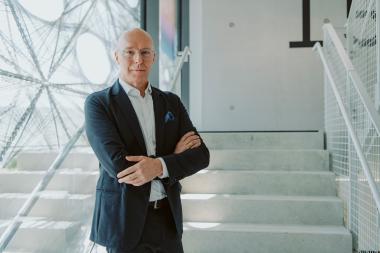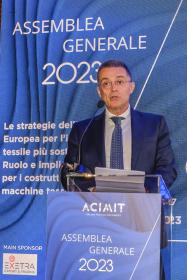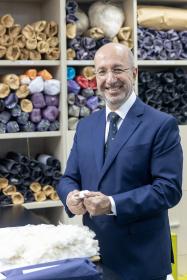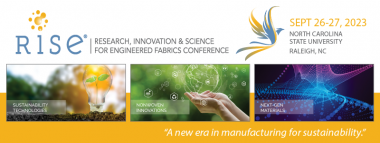Südwesttextil-Führung trifft Wirtschaftsministerin
Wirtschaftsministerin Dr. Nicole Hoffmeister-Kraut tauschte sich nach dem Präsidentenwechsel mit Südwesttextil zu aktuellen politischen Themen der Branche aus.
Am Dienstag trafen sich der neue Südwesttextil-Präsident Arved H. Westerkamp, Ehrenpräsident Bodo Th. Bölzle und Hauptgeschäftsführerin Edina Brenner mit Dr. Nicole Hoffmeister-Kraut, Ministerin für Wirtschaft, Arbeit und Tourismus des Landes Baden-Württemberg. Neben dem Kennenlernen des neuen Präsidenten standen vor allem die Themen im Fokus, die die baden-württembergische Textil- und Bekleidungsindustrie aktuell beschäftigen.
Dazu zählt das Lieferkettensorgfaltspflichtengesetz, dessen Anwendungsbereich schon heute Mitgliedsunternehmen direkt oder auch mittelbar als Zulieferer betrifft. Die Textil- und Bekleidungsindustrie in Baden-Württemberg bekennt sich zu den Leitlinien des Lieferkettensorgfaltspflichtengesetzes; die unternehmerische Sorgfaltspflicht darf sich aber nur auf diejenigen Bereiche erstrecken, die auch tatsächlich kontrolliert werden können; Praktikabilität inkludiert. Besonders mit Blick auf die angedachten Verschärfungen der europäischen Corporate Sustainability Due Diligence Directive betont der Verband den Bedarf, Sanktionen auf vorsätzliche oder grob fahrlässige Verstöße zu begrenzen und bürokratische Belastungen sehr deutlich zu reduzieren.
Die Betroffenheit vieler technischer Textilien durch die europäische Chemikalienverordnung REACH stand ebenfalls auf der Agenda. Durch die PFAS-Regulierungen sind beispielsweise Rettungs- oder schusssichere Westen, Spezialtextilien für Brennstoffzellen, Wundpflaster oder Heißgasabluftfilter betroffen. Der Verband ruft einerseits dazu auf, textile Entwicklungen der Branche voranzutreiben, setzt sich aber auch für ein differenzierteres politisches Vorgehen ein. Sukzessive Grenzwertabsenkungen statt Totalverbote, Ausnahmen für existenzielle Textilien bei verstärkter Wahrnehmung der Innovationen der Branche im Bereich Recycling und Kreislaufwirtschaft.
Abgerundet wurde das Gespräch durch das vielfältige Engagement des Verbands für den Nachwuchs- und Fachkräftemangel der Industrie. Dokumentiert durch den Neubau des Texoversums auf dem Campus der Hochschule Reutlingen und den neuen Aktivitäten der TEXOVERSUM Experts & Training Hub gGmbH für die textile Aus- und Weiterbildung. Politisch sieht Südwesttextil das weiterentwickelte Fachkräfteeinwanderungsgesetz als Chance, den bestehenden, großen Bedarf an Fachkräften abzumildern, allerdings müssen dabei auch die Prozesse der Verwaltung beschleunigt und digitalisiert werden.
Arved H. Westerkamp zog ein positives Resümee des Termins:
„Wir setzen uns für die Zukunft der Textil- und Bekleidungsindustrie hier in Baden-Württemberg ein und stellen uns aktiv den Herausforderungen im Bereich der sozialen Standards, Umwelt und Klima etc. Dabei setzen wir auf die konstruktive und vertrauensvolle Zusammenarbeit mit dem Ministerium für Wirtschaft, Arbeit und Tourismus. Wir freuen uns, dass die politischen Themen der Branche Gehör finden!“
Südwesttextil Verband der Südwestdeutschen Textil- und Bekleidungsindustrie Südwesttextil e.V. PFAS Baden-Württemberg
Südwesttextil


